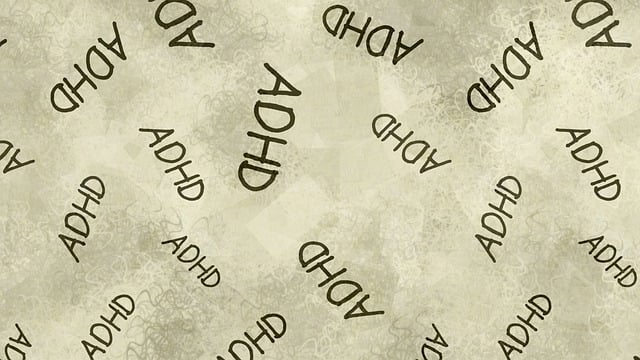In times of crisis, a trained Crisis Intervention Team (CIT) using Boulder Spiritual-Religious Issues Therapy can significantly help individuals dealing with personal depression and community spiritual challenges. This diverse team, comprising mental health professionals, first responders, and laypersons, receives specialized training to provide immediate support through communication strategies and conflict resolution techniques. By creating safe spaces for dialogue and empathy, they facilitate healing, resolve conflicts, and enhance Boulder's therapy services. Incorporating spiritual-religious therapy in crisis intervention training ensures professionals can address vital spiritual aspects, build resilience, and manage risks effectively, promoting holistic de-escalation and improved coping strategies. Effective crisis intervention in Boulder relies on well-structured programs focusing on this integrated approach.
In times of crisis, having well-trained professionals equipped to handle sensitive situations is paramount. Crisis Intervention Team (CIT) training programs play a crucial role in fostering community resilience and support. This article delves into the essential components of CITs, highlighting the significance of addressing spiritual and religious issues prevalent in crisis scenarios. We explore effective training methodologies, focusing on Boulder-based approaches that revolutionize therapy interventions, integrating spiritual-religious considerations for comprehensive care.
- Understanding Crisis Intervention Teams: A Vital Resource in Times of Need
- The Role of Spiritual and Religious Issues in Crisis Situations
- Training Programs: Equipping Professionals for Effective Support
- Implementing Boulder-Based Approaches for Enhanced Therapy Interventions
Understanding Crisis Intervention Teams: A Vital Resource in Times of Need

In times of crisis, whether it’s a personal struggle with depression prevention or a community facing spiritual-religious issues, having a trained and ready Crisis Intervention Team (CIT) can make all the difference. CITs are specialized groups composed of individuals from diverse backgrounds, including mental health professionals, first responders, and laypersons, who receive intensive training to provide immediate and effective support during moments of heightened distress or conflict. This collaborative approach ensures that help is accessible and tailored to meet the unique needs of those in crisis.
The role of a CIT extends beyond direct intervention; they also focus on early identification of potential issues, utilizing communication strategies and conflict resolution techniques to de-escalate situations before they escalate. By fostering open dialogue and offering empathy, these teams create safe spaces for individuals to express themselves and begin the process of healing or resolving conflicts. With the right training, Boulder’s spiritual-religious therapy services can be amplified, making a significant impact on the well-being of our community.
The Role of Spiritual and Religious Issues in Crisis Situations

In crisis intervention team training programs, addressing spiritual and religious issues is a crucial component that often goes overlooked. In many high-stress situations, individuals may turn to their faith or spiritual practices for comfort and guidance, making it essential for mental health professionals to understand these aspects. Incorporating Boulder Spiritual-Religious Issues Therapy into the training curriculum enhances the team’s ability to offer holistic support. By learning to respect and incorporate religious beliefs during crisis intervention, teams can build resilience among individuals facing existential crises, offering a sense of purpose and hope that boosts confidence in managing challenging situations.
The integration of spiritual considerations also facilitates effective risk management planning for mental health professionals. Understanding the role of faith in an individual’s life allows team members to anticipate potential triggers or coping mechanisms tied to religious beliefs. This knowledge is invaluable during crisis de-escalation, enabling teams to tailor interventions and support strategies that address not just the immediate issue but also the underlying spiritual needs of those involved. Thus, promoting resilience building and enhancing the overall effectiveness of crisis intervention.
Training Programs: Equipping Professionals for Effective Support

Effective crisis intervention often hinges on well-structured training programs that equip professionals with the necessary tools to support individuals facing spiritual-religious issues and related therapy challenges. These programs go beyond surface-level skills, delving into comprehensive strategies for managing stress and promoting mental wellness. Participants gain insights into empathy building, a cornerstone of successful crisis interventions, allowing them to connect deeply with clients from diverse backgrounds.
In the context of Boulder’s thriving community, local training initiatives focus on fostering resilience through both theoretical knowledge and practical exercises. Incorporating techniques such as active listening, crisis de-escalation methods, and cultural sensitivity training ensures that professionals are prepared to navigate complex situations with professionalism and care. These programs not only enhance individual growth but also contribute to a supportive ecosystem where stress management and mental wellness coaching become integral parts of crisis intervention practices.
Implementing Boulder-Based Approaches for Enhanced Therapy Interventions

In recent years, there has been a growing recognition of the importance of addressing spiritual and religious issues in therapy interventions, leading to the development of approaches like those based on Boulder’s model. This innovative approach integrates self-care practices and inner strength development, empowering individuals to navigate crises with resilience. By incorporating aspects of mental wellness journaling exercises into their training, crisis intervention team members learn to facilitate a holistic healing process for clients.
Boulder-based strategies offer a unique perspective, emphasizing the connection between spiritual well-being, personal growth, and effective therapy. This comprehensive approach not only equips crisis teams with enhanced skills but also fosters a deeper understanding of the client’s journey. By combining these techniques with traditional counseling methods, mental health professionals can provide more tailored support, ensuring individuals in crises not only survive but thrive.
Crisis intervention team training programs, such as those incorporating Boulder-based approaches, are instrumental in equipping professionals to effectively support individuals facing crisis situations. By addressing spiritual and religious issues alongside psychological ones, these programs enhance the therapeutic process, providing comprehensive care tailored to each individual’s unique needs. This holistic approach ensures that folks receive not just practical assistance but also emotional and spiritual solace during challenging times.














